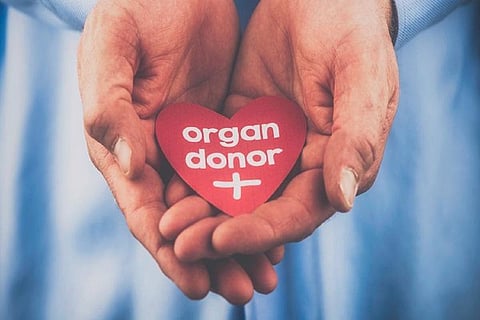

As there is widespread loss to life and livelihoods due to the spike in the novel coronavirus infection, shortage of organ donors has surfaced as another collateral damage of the pandemic era.
TNM spoke to doctors and other experts in the field who say, while on the positive side, road accident victims, the major contributors are going down due to less number of fatal road accidents, there are patients who are dying in want of organs. The death of liver donors is a major issue, say doctors.
Dr Rajiv Lochan, a senior consultant surgeon at Aster CMI Hospital, Bengaluru said in all of their branch hospitals across the state there have been no donations in the last five months from deceased donors. “Since the pandemic has kicked in organ donations have stopped in Bengaluru and rest of the state, almost altogether. There are some donations happening in neighbouring states but they are too few and far between,” he said.
He added, “There is a significant number of deaths that are occurring on our waiting list due to want of organ donations.”
Acute-on-chronic liver failure (ACLF) patients are the major affectees due to this prevalent situation as they might not have any eligible donors among the near family members.
He reasoned the crisis is due to multiple reasons. For one, he said there is a significant drop of patients coming in for intensive care for non-COVID-19 reasons, reduction of fatal road accidents, lack of systematic monitoring of the status of brain dead patients owing to the COVID-19 crisis. “Identifying brain stem deaths, identifying donors and maintaining the patients also take a lot of effort and this is difficult given all resources are now concentrated to fight COVID-19. Also there is this issue of counselling the family members of the patients,” he said.
“So there is no doubt that this collateral damage of the pandemic is equal to the direct problems of the disease,” he opined.
Transplant coordinator at Jeevasarthakathe (a state government body for facilitating cadaveric organ donation) , KU Manjula, said that earlier till March, on an average the state would see organs being harvested from at least eight brain dead patients. But since the onset of the pandemic, there have been no successful transplantations since April.
“Right now, we are missing many cases where due to logistical or other reasons we are failing to retrieve the organs. Sometimes due to COVID-19 regulations, patient parties may want to get done with the funeral rites in haste. Last month we had seven missed cases as the patient’s family withdrew the consent,” she said.
She said there are more than 3,000 patients awaiting kidney donations alone.
Organ donation works in India in two ways--a) the donor can be a living person who volunteers to donate either part of an organ (like a lobe of their liver) or a paired organ (like a kidney) or b) persons who are declared brain-dead after all clinical treatments to bring them back to life fails.
All healthy persons can volunteer to donate their kidney, liver, heart, eyes post their death. In Karnataka, there are more than 40 authorised hospitals to carry out organ transplantation with a majority of them being in Bengaluru.
He said for all these reasons, only live donations by near relatives are taking place. “But this will only work for patients having eligible family members with the same blood group and the right health condition.”
The situation is the same for patients needing heart and lungs but only worse as there is no possibility of live donations.
Dr Mohan Kumar, Consultant Urologist and Renal Transplant Surgeon at Apollo Hospitals, Chennai raised another important issue.
“Even if a patient is brain dead, we can’t be sure if he or she is COVID-19 negative or not as swab tests have only an efficacy of 60% and even for kidney failure patients, their family members do not want to go ahead with the transplantation,” he said.
He added that most doctors are also unwilling to do live donations given that recipients need to be administered immunosuppressants and that may prove fatal as that will pose them at a greater risk of acquiring COVID-19 infection.
“Since the donor is a healthy person, we as doctors are at a moral dilemma if to put them at a life threatening risk in this post-pandemic time. So for one there is a shortage of cadaver (brain dead) donors and there is the other issue of doctors unwilling to put healthy patients at risk. So we are trying to delay the process by using dialysis even though quality of life is much less compared to those undergoing transplant,” he explained.